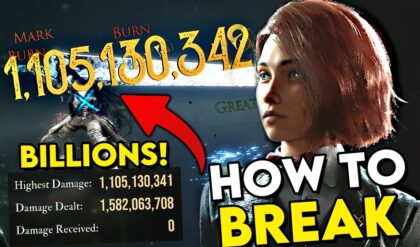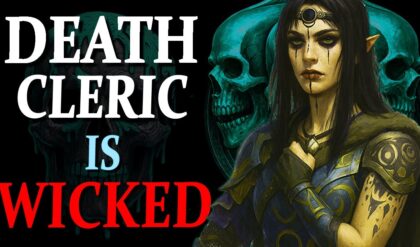Joe Rogan’s Bewilderment: Why Are Fans Still Obsessed with The Walking Dead?
Joe Rogan, the unfiltered voice behind The Joe Rogan Experience, has stirred up a storm with his latest hot take: he finds it “weird” that fans are still glued to The Walking Dead franchise. Voiced during a lively chat with comedian Theo Von, Rogan’s comments target the zombie saga that wrapped its main series in 2022 after 11 seasons but lives on through spin-offs like The Walking Dead: Daryl Dixon, Dead City, and The Ones Who Live. His remarks have sparked a divide, with some nodding in agreement and others defending the franchise’s enduring grip. What’s behind Rogan’s critique, and why does The Walking Dead still command such loyalty? Let’s dive into his perspective, the franchise’s evolution, and the reasons fans can’t let go of this apocalyptic world.
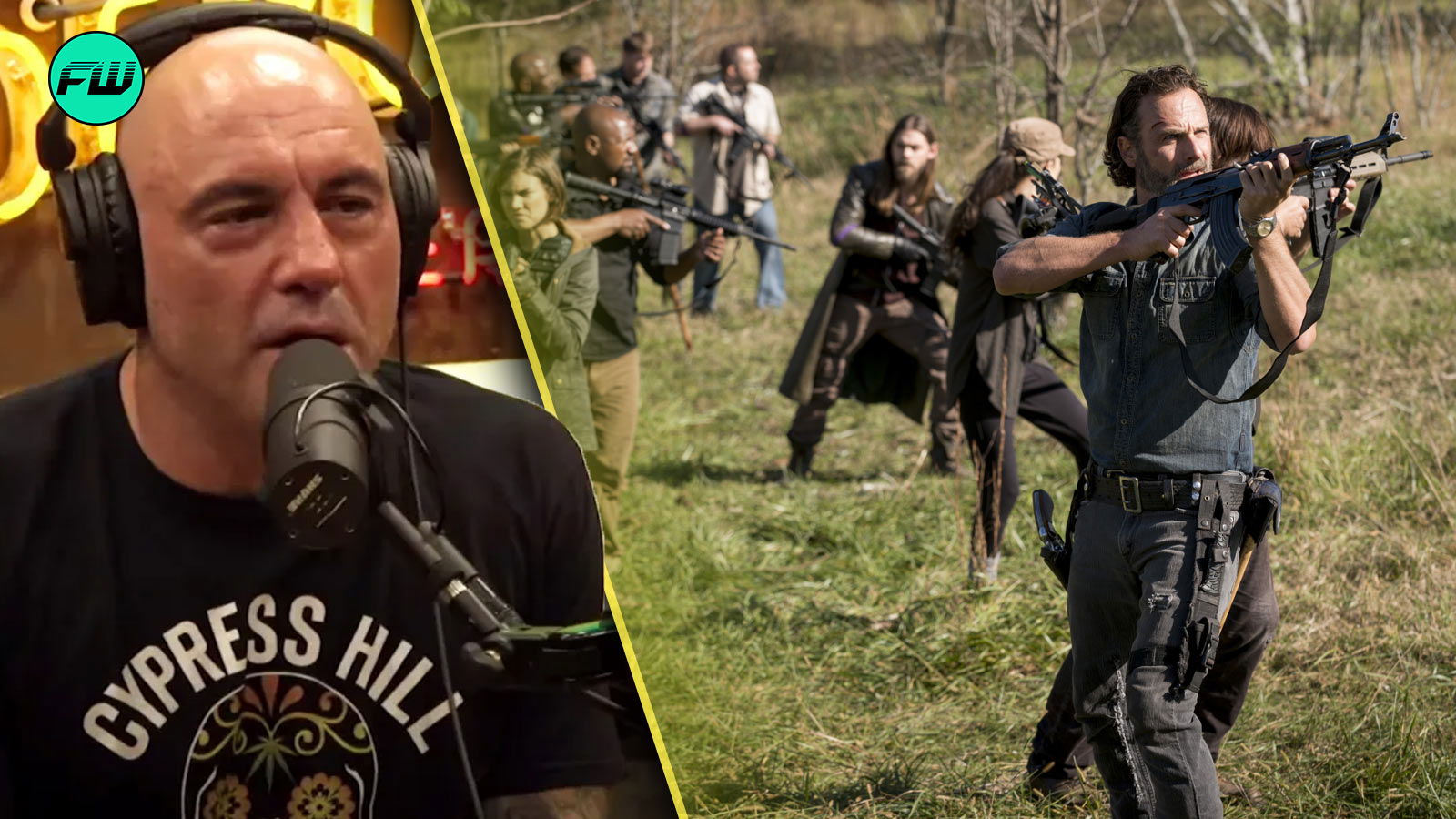
Rogan’s Take: A Zombie Saga Past Its Prime?
Rogan’s skepticism surfaced in a podcast episode where he and Theo Von riffed on The Walking Dead’s longevity. Von suggested it’s “almost weird” that people are still watching, and Rogan doubled down, mocking fans who claim the newer seasons or spin-offs are their favorites. He jokingly imitated a die-hard fan: “This new season is the best yet! We’re done with just killing zombies, and now it’s getting scary again!” His sarcasm highlights a belief that the franchise, with its 177-episode main series and multiple spin-offs, has run its course, recycling the same zombie-slaying formula for too long. For Rogan, the sheer volume of content—spanning over 15 years—makes it hard to see how the story could still feel fresh.
This isn’t Rogan’s first jab at the show. Back in 2020, he revealed he quit watching after the Season 7 premiere, which featured the gruesome deaths of Glenn and Abraham at the hands of Negan’s barbed-wire bat, Lucille. Rogan called the killings “disrespectful” to beloved characters, arguing that the show’s brutal dispatch of fan favorites showed a lack of regard for viewers’ emotional investment. “I was all in for the first few seasons. It was awesome, but when they killed Glenn like that, I was out,” he said, describing the deaths as “non-valiant” and overly graphic. His reaction mirrors a broader fan backlash at the time, with many feeling the violence crossed a line, contributing to a viewership drop from 17 million at the show’s peak to under 3 million by its finale.
Rogan has also nitpicked the show’s realism, particularly its weaponry. As a bow-hunting enthusiast, he’s criticized the use of field-tip arrows in archery scenes, pointing out that they’re meant for practice and would be useless against zombies compared to broadhead arrows designed for hunting. “They’re using practice tips! No broadheads, just nonsense,” he vented, framing it as a symptom of the show’s declining attention to detail. Together, these grievances—repetitive plots, shocking character deaths, and technical inaccuracies—fuel Rogan’s view that The Walking Dead has overstayed its welcome, making its continued popularity “weird” to him.
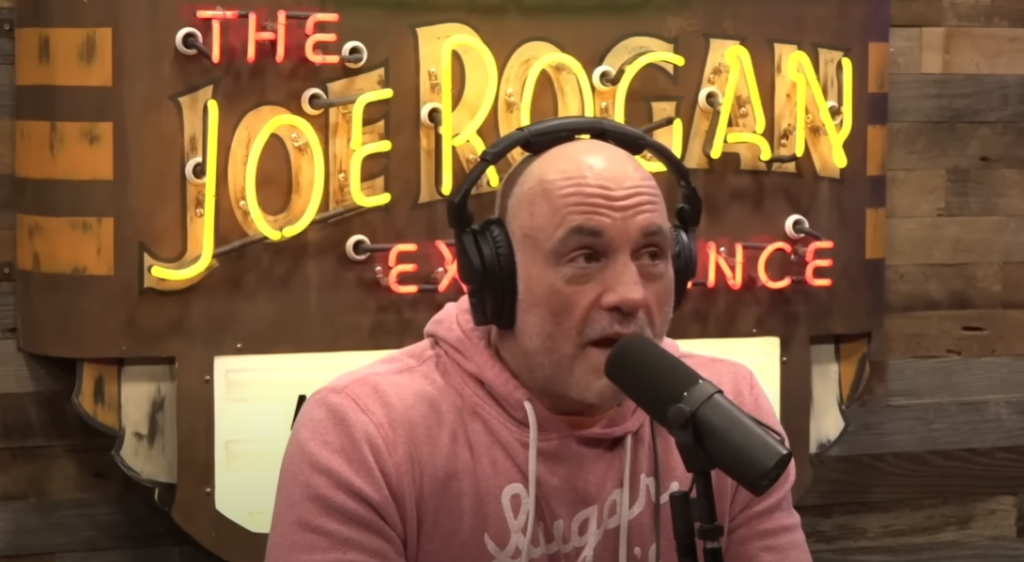
The Walking Dead’s Journey: From TV Hit to Sprawling Franchise
To contextualize Rogan’s critique, it’s worth examining The Walking Dead’s trajectory. Launched in 2010 on AMC, the series, adapted from Robert Kirkman’s comic books, became a global phenomenon, peaking at 17 million viewers for its Season 5 premiere. Its raw depiction of survivors like Rick Grimes, Daryl Dixon, and Michonne navigating a zombie-infested world hooked audiences with its blend of gore and human drama—love, loss, and moral dilemmas. Early seasons were praised for their tight storytelling and character depth, but cracks appeared as the series progressed. The Season 7 premiere, which Rogan cited as his breaking point, alienated many with its unrelenting violence, triggering a steady decline in live viewership.
By the time the main series ended in 2022, it was averaging just 2–3 million viewers per episode, a shadow of its former glory. Yet, The Walking Dead didn’t fade away; it evolved into a franchise. Spin-offs like Fear the Walking Dead (2015–2023), The Walking Dead: World Beyond (2020–2021), and Tales of the Walking Dead (2022) expanded the universe, while newer shows—Dead City, Daryl Dixon, and The Ones Who Live—focus on core characters. Daryl Dixon, set in France, earned an 81% on Rotten Tomatoes for its second season, while The Ones Who Live, a Rick-Michonne love story, drew strong streaming numbers on AMC+ in 2024. Dead City, pairing Maggie and Negan in a post-apocalyptic Manhattan, has been renewed for a second season, and projects like More Tales from The Walking Dead Universe are in the works, hinting at further growth.
This expansion is central to the debate Rogan’s comments ignite. For critics, the spin-offs feel like a cash grab, milking a tired premise with new locales but the same zombie-killing core. Online discussions reflect this, with some users arguing that the franchise should have ended with the main series to preserve its legacy. Others, however, see the spin-offs as a reinvention, offering fresh narratives and closure for beloved characters. The franchise’s ability to pivot—shifting from group survival to individual journeys—keeps it relevant, even if it frustrates viewers like Rogan who crave a definitive end.
Why Fans Keep Coming Back
Despite Rogan’s bewilderment, The Walking Dead retains a loyal fanbase, and the reasons are multifaceted. At its heart, the franchise excels at human stories, not just zombie carnage. The spin-offs cater to this by focusing on character arcs: The Ones Who Live resolves Rick and Michonne’s long-separated romance, giving fans closure after Andrew Lincoln’s 2018 exit; Daryl Dixon explores Daryl’s evolution as a lone wanderer in a foreign land; and Dead City delves into Maggie and Negan’s fraught alliance, tackling themes of redemption and trust. These stories shift the focus from endless zombie battles—Rogan’s chief complaint—to emotional stakes, keeping viewers invested.
The franchise’s diversity also broadens its appeal. By introducing queer characters, like those in Daryl Dixon, and featuring diverse casts across spin-offs, The Walking Dead aligns with modern sensibilities, attracting new viewers. Its settings—Paris in Daryl Dixon, Manhattan in Dead City—add visual novelty, countering the monotony Rogan critiques. Fans online praise these shifts, with some arguing that Daryl Dixon’s European backdrop and The Ones Who Live’s emotional heft make the spin-offs feel like a new era, not a rehash.
Thematically, The Walking Dead taps into timeless questions: How do we rebuild after collapse? Can we forgive those who’ve wronged us? These resonate in an era of global uncertainty, from pandemics to social divides. Negan’s redemption arc in Dead City, for instance, challenges viewers to reconsider morality, while Daryl’s journey in France explores resilience and identity. The comic book source material, still overseen by Kirkman, provides a rich foundation, ensuring new stories stay rooted in the universe’s ethos.
Community also plays a role. The Walking Dead has fostered a dedicated fandom, active on social media and forums, where fans dissect episodes, speculate on crossovers, and celebrate their favorite characters. This sense of belonging keeps viewers engaged, even when the narrative falters. The franchise’s accessibility—streamable on Netflix for the main series and AMC+ for spin-offs—makes it easy for fans to stay connected, while buzz around new seasons keeps it in the cultural conversation.
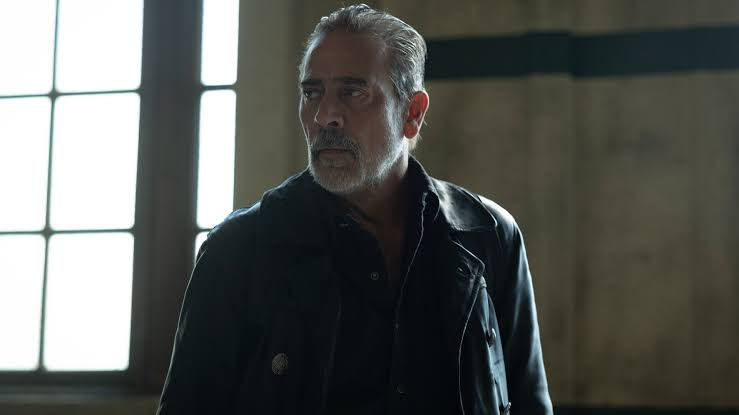
Rogan’s Critique in Context
Rogan’s comments are compelling because they reflect a personal journey from fan to skeptic. He’s admitted to loving the early seasons, even geeking out over details like weaponry, which makes his current stance poignant. His gripes—Glenn’s death, repetitive plots, unrealistic archery—echo a segment of the audience that felt betrayed by the show’s later seasons. The Season 7 premiere, for instance, lost 6 million viewers in a month, as many shared Rogan’s sense that the violence was gratuitous. His archery complaint, while niche, points to a broader desire for authenticity that he feels the show abandoned.
However, Rogan’s view overlooks the franchise’s adaptability. The spin-offs address some of his criticisms by scaling back on zombie hordes and focusing on character-driven stories. Daryl Dixon, for example, emphasizes Daryl’s personal growth over mindless action, while The Ones Who Live prioritizes romance and resolution. Rogan’s focus on the main series’ length ignores how these new stories cater to fans who want more from their favorite characters, not less. His “weird” label also underestimates the power of fandom, where emotional investment trumps narrative fatigue.
The Future of The Walking Dead
The Walking Dead franchise is charging forward. Daryl Dixon Season 3 is filming, with potential crossovers with Dead City. More Tales from The Walking Dead Universe will offer anthology-style stories, expanding the universe’s scope. Streaming platforms ensure accessibility, with Netflix hosting the main series and The Ones Who Live, and AMC+ carrying Daryl Dixon and Dead City. These outlets keep viewership steady, countering Rogan’s implication that the franchise is niche. Kirkman’s involvement ensures narrative consistency, with new projects likely to balance fan service with innovation.
For fans, the spin-offs promise more stakes—Daryl’s survival, Negan’s redemption, the possibility of Rick and Michonne’s return. These keep the universe vibrant, even if Rogan finds its persistence odd. As the franchise explores new characters and settings, it may win back skeptics by proving it’s more than “just killing zombies.”
Why Everyone’s Talking About Rogan’s Take
Joe Rogan’s claim that it’s “weird” to still watch The Walking Dead resonates because it taps into a larger debate about legacy shows in the streaming age. For some, he’s voicing a valid frustration with a franchise that’s stretched its premise thin. For others, he’s missing the point of a universe that’s reinvented itself to focus on human stories, not just gore. His comments, rooted in his own disillusionment, spark a conversation about what makes a show endure—fandom, evolution, or sheer nostalgia.
Whether you side with Rogan or the fans, The Walking Dead remains a force, proving that stories of survival and connection can outlast even the harshest critics. As the franchise forges ahead, it’s clear the apocalypse still has plenty of life left—and plenty of fans ready to fight for it.


